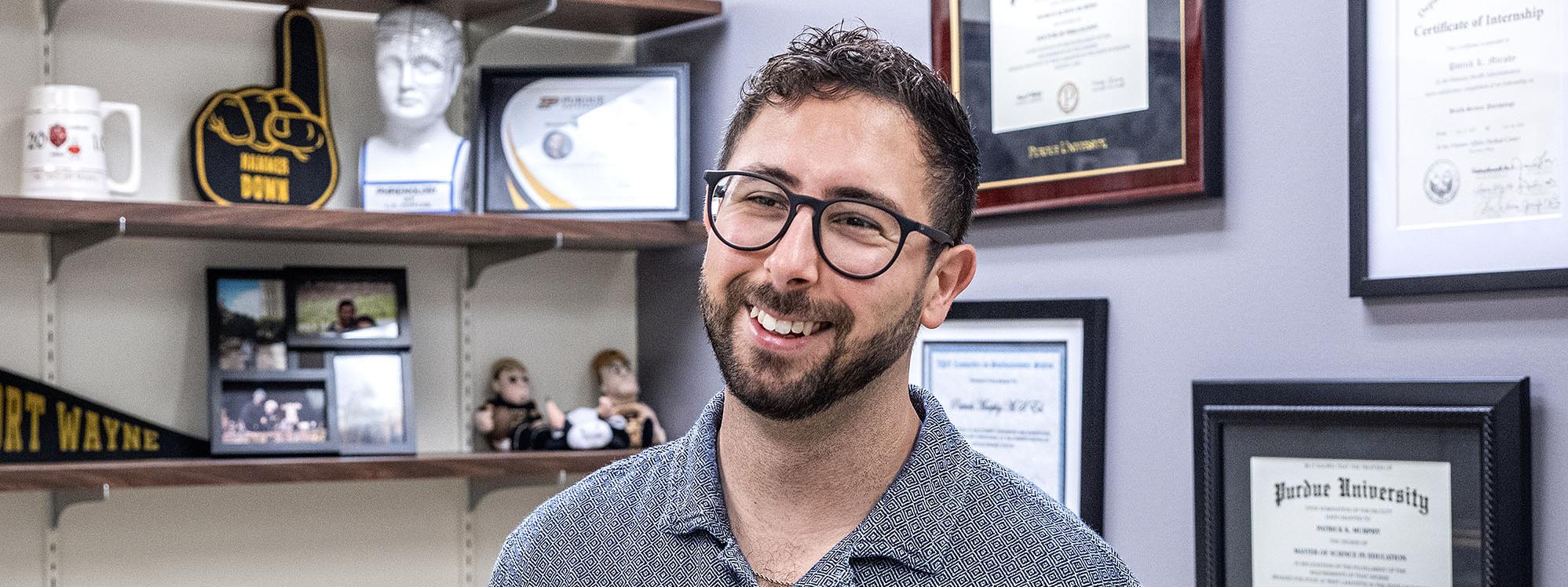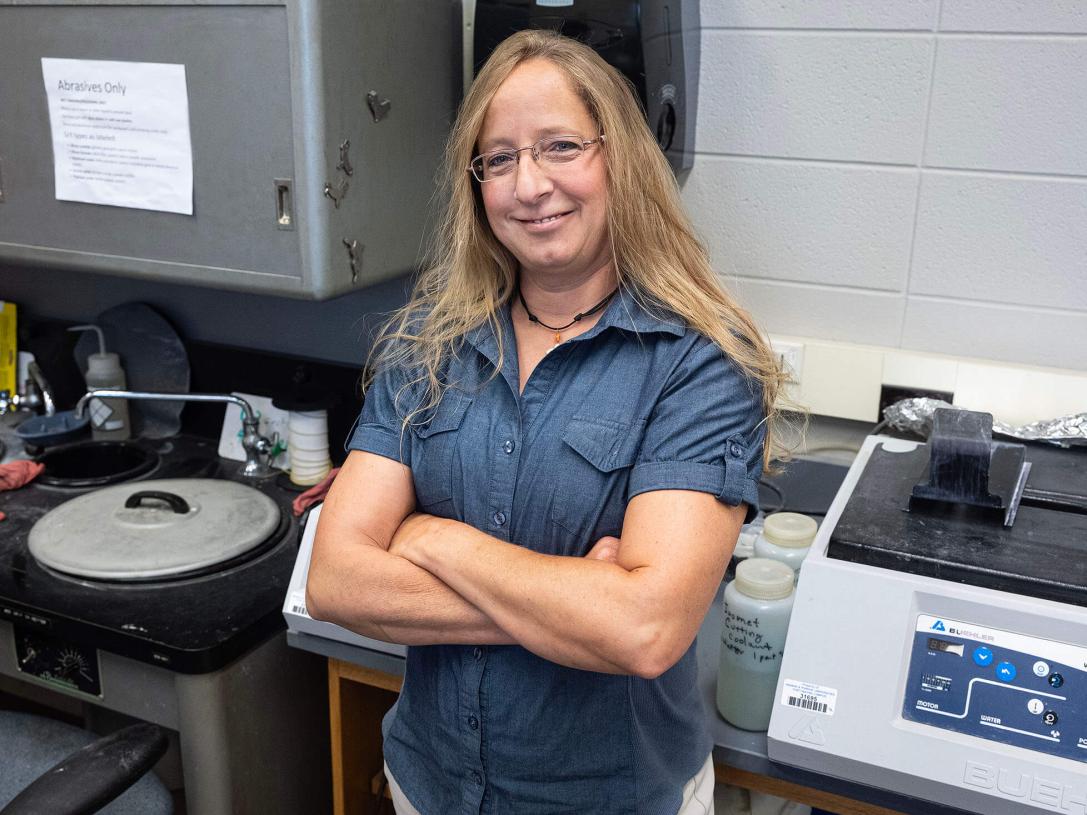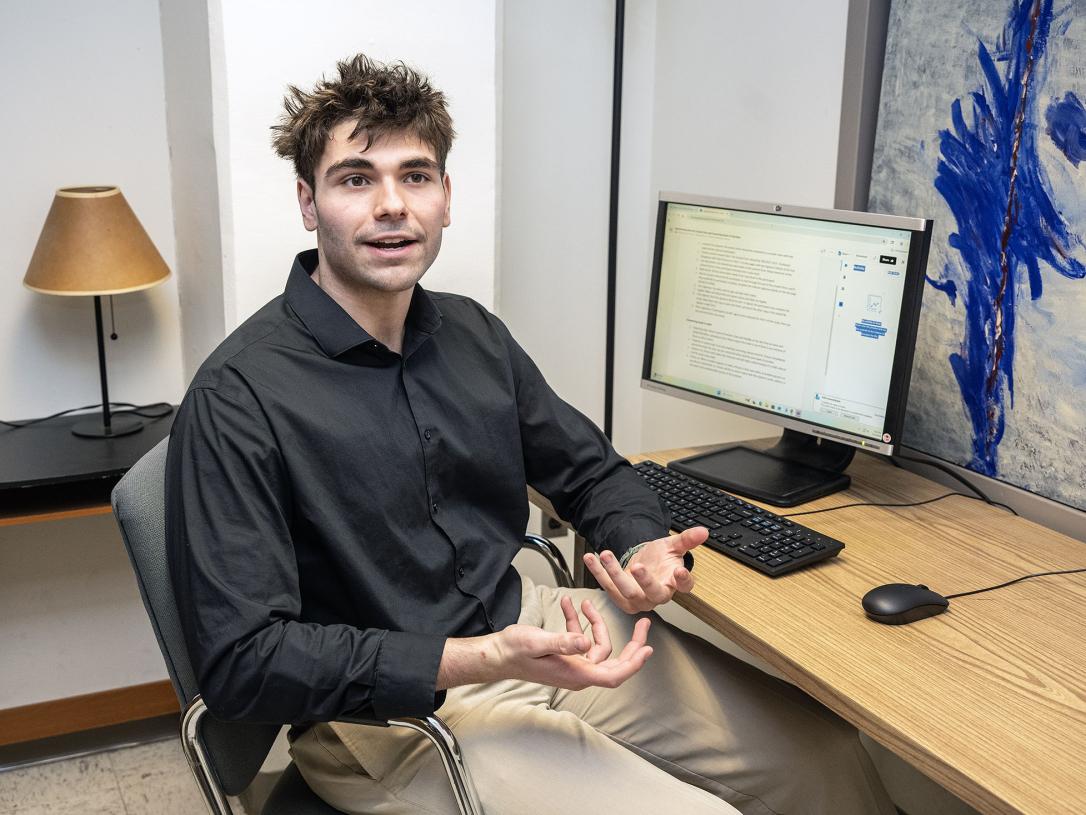
Challenging students with the power of positive psychology
By Blake Sebring
June 17, 2025
Every time Patrick Murphy walks into a classroom he’s trying to be what Robert Blubaugh was for him as a student—the teacher who sparked a life and eventually a career.
When his high school offered a psychology course for the first time in years, Murphy was a senior in a small Indiana farming community. An admitted middling student who often sat in the back row and wondered if anyone noticed him, Murphy achieved perfect scores on nearly every test in Blubaugh’s class. Expecting a life as a laborer like almost everyone else in the town, Murphy was captivated by the subject, not just intellectually, but in a way that spoke to a deeper yearning for something more.
Now an assistant professor of psychology, Murphy, B.A. ’16, focuses his research on positive psychology and upward mobility in American society, while emphasizing growth mindset in his classes. After all, as he was back in the day, his students may not have a good realization of what they are capable of, especially if someone doesn’t lead and push them to find out. Like Blubaugh, he’s exposing them to something they may not know, and at the same time, teaching them how to challenge their boundaries.
Sometimes that means challenging students with high expectations, guiding them to the obstacle, and then helping them find the motivation to step over it and grow.
“It’s the real-lived experience of having a challenge,” Murphy said, “`Oh, I have to climb this mountain, or am I going to sit here at the bottom?’ And if you climb it and you’re literally at the peak of that, you say, `Wow I didn’t even think I could get here. I’m more capable than I thought I was.’
“Yes, they lived it, and that’s more powerful than me telling them they can do it. They used their own experience to prove it to themselves what they are capable of,” adds Murphy. “ So, the next challenge they come up against, they have already done hard things and beat them.”
As mainstream psychology predominantly focuses on what’s wrong with people, positive psychology encourages them to enhance their strengths. The theories started with pioneers such as Carl Rogers and Abraham Maslow, and have been further extrapolated by Martin Seligman.
“What’s right with us and how do we improve that?” Murphy asks. “We’ve learned from the research lab that it’s not only about knowing your strengths, but actually using them. When people are actively involved, they are using those strengths in their life.”
Murphy has a list of his strengths from the Values in Action Inventory test, which is taped to the file cabinet next to his desk. His top three traits include curiosity, gratitude, and appreciation of beauty and excellence, so Murphy tries to put himself in spaces where he can use them. That includes spending time in nature, visiting art exhibits, or attending live music events.
“Using those strengths leads to more benefits to my well-being,” he said. “People report when they use their strengths—not just know about them but use them—they report a greater sense of life satisfaction and meaning, and the more you get out around people, usually it gives you a boost. When we look at when we ask people across the world, `What are your happiest moments?’ they tend to report it’s in the presence of other people.”
Living positively does not mean negative aspects of life disappear, but rather how they are handled. Murphy said it’s about how all of life is integrated together, and a big part of positive psychology must include resilience.
“Resilience is a positive concept, but it doesn’t exist unless there’s some adversity, unless there’s some risk involved,” he said. “It’s a true integration of positive and negative experiences in the world, and people still making something beautiful out of it.”
That theory is the core of his teaching style—how can he reveal and help his students build their core skills and interests to benefit their future career and life? Part of that is realizing limitations, but also building up strengths.
How can Murphy do for them what his own teacher, Robert Blubaugh, brought out in him?
“I didn’t always have that kind of support or belief in me,” Murphy said. “Coming from a poor, rural background, people made assumptions about what I was capable of. Encouragement like that was actually reserved for students from better-off families—students who were expected to go far. But when I started to get that support, I started to thrive.
“He inspired me because he helped highlight that I was good at something I never even considered. This became my calling, but it might never have happened if it wasn’t watered.”




